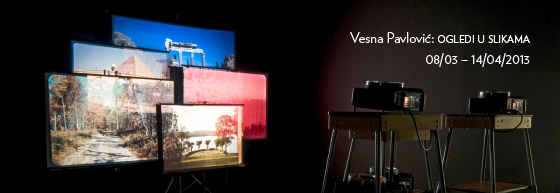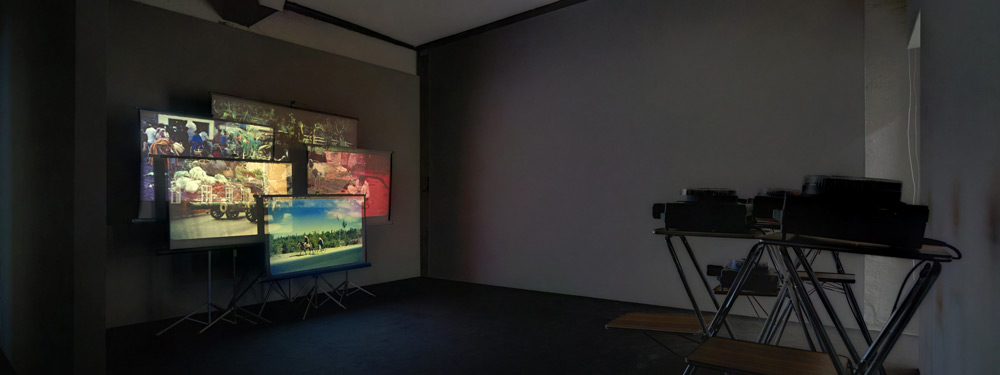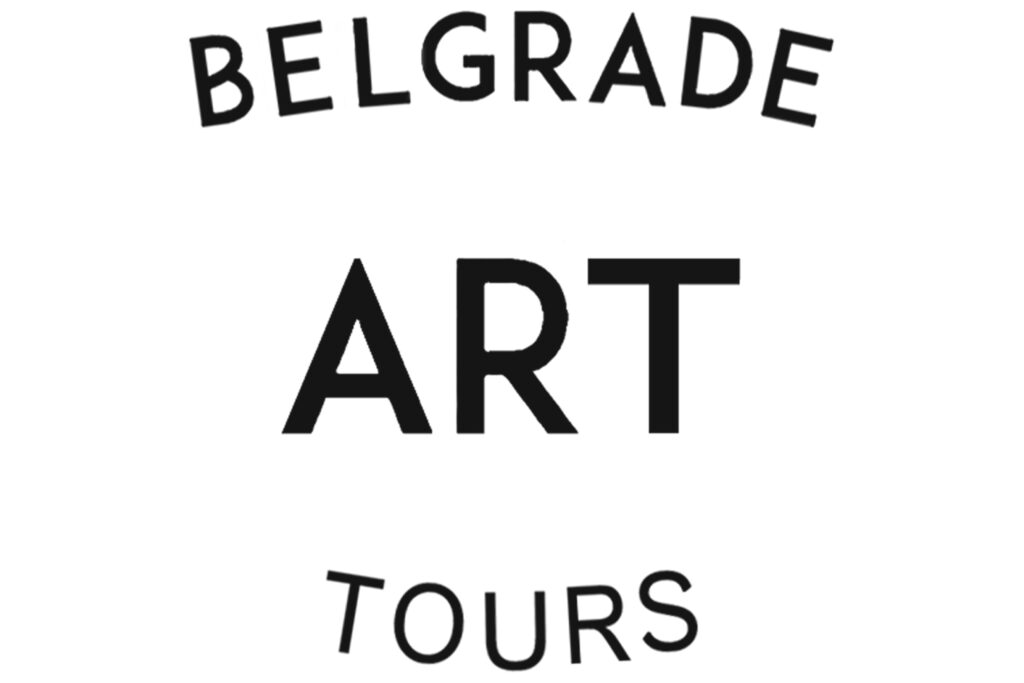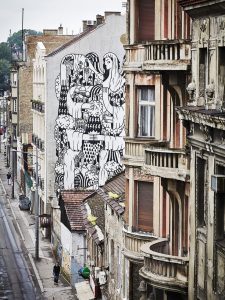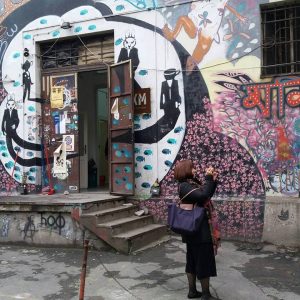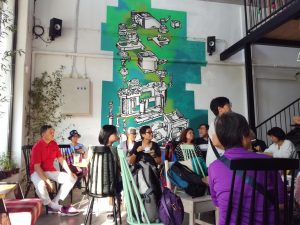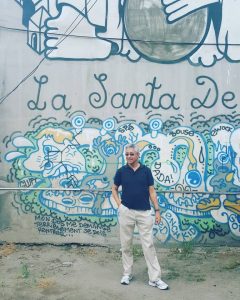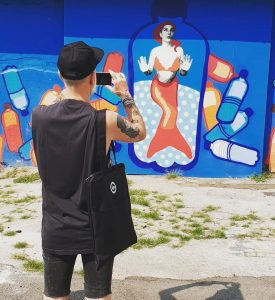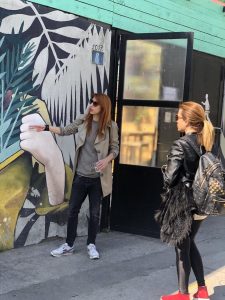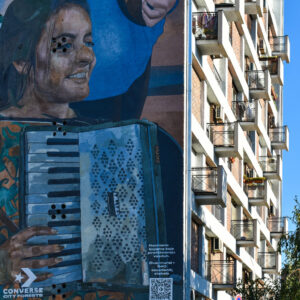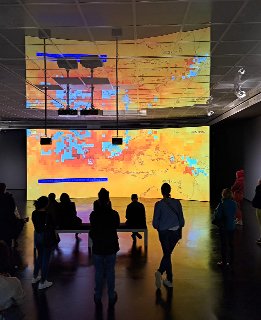Salon of the Museum of Contemporary Art
Pariska 14, Belgrade
tel/fax: +381 (0)11 2630 940
www.msub.org.rs
Working hours: from 12:00 to 20:00, except on Tuesdays
……………………………………………………………………………..
VESNA PAVLOVIĆ: REFLECTIONS ON IMAGES
Curator: Branislav Dimitrijević
Exhibition opening: Friday, March 8, 2013, at 19:00
Exhibition will run until April 14, 2013.
Conversation with the artist and curator:
Saturday, March 9, 2013, at 18:00
within the framework of the Centre for Photography “Artist is speaking”
Vesna Pavlović is present on the Belgrade photography and art scene since the beginning of 1990s, at first in collaboration with the Škart collective, and afterwards independently, gradually developing her own distinctive, partial, engaged and empathic approach to photography. Many of her photos from the early period of work came to be the emblematic documents on the social processes and the people that, from within the field of civil society, tried to make some difference against an ideologically generated social apathy and relativisation. From the beginning of the last decade, her photographic lens is increasingly focused on scenes and settings that, at first glance, seem rather empty and uneventful, which, however, are symptomatic of the ongoing social processes — from lavishly decorated but uninhabited houses and yards of guest-working Wallachians, in Eastern Serbia, to the symbolic spaces of abandoned and unfinished modernity in the series of photos of hotel rooms and lobbies, offices or festivity halls in some of the state and financial institutions, in Serbia and elsewhere.
From 2006, Vesna Pavlović lives in US, where she had her MFA degree in Visual arts from the Columbia University in New York, and then went on to became the Professor of Photography and Digital Media at the Vanderbilt University in Nashville. At that point, her artistic practice enters a new stage and the present solo exhibition at the Salon of MoCA is the first opportunity for the Belgrade audience to see her latest works.
In an artistic and theoretical way, the bulk of her work take as its starting point the issues raised by one of the most productive among the amateur photography genres — the tourist photography.
It is about a research method wherein the artist discovers both semantic and syntactic properties of the genre, and its pragmatic and paradigmatic social role, halfway between private and public realm. She sets out from an accepted insight which has it that, for us, every tourist site is already produced and pre-visualised beforehand, and that through his/hers photos every tourist is not only putting that particular place inside a frame but also, through the image itself, asserts and fetishises his/her own presence. Her research, and the way of presenting it, aims primarily at discerning the relations created between material space, such as we perceive it, and imaginary/conceptualised space as a photographic representation — i.e. the way that these two (spaces) are brought together in the “Lefebvrian” concept of experienced space, the space as an experience.
For Vesna Pavlović, photography is not just a medium of representing an experience, but a material item taking part in the recollection of that experience — no matter whether it is the photographic slides’ tangibility represented at once as transparent images and as non-transparent physical objects, or the superimposition of the slide projections which were a part of some family experience of watching them together (in contrast to nowadays when one finds slide-projectors only in museums and galleries). In her works, photograph, along with everything materially connected to photographic process and the ways of looking at photographs, is reproduced in new spatial relations (installations) where the photograph remembers its pre-digital history. What we have here is a proceeding which reflects on the translation and reproduction of different photographic archives, but also reflects on the way archives emerge not as something found but rather as something constructed, not so much as pertaining to facts but rather as something fictional. The exhibition at the Salon of MoCA includes a premier show of one such archive in the making which draws on a part of the photo documentation from the Museum of Yugoslav History containing photos taken during Josip Broz Tito’s voyages around the world, the documents which underscore the fragile distinction between private and public realm when it comes to this type of material.
Vesna Pavlović’s exhibition is more contemplative than it is demonstrative. For her, photography is not a means of producing images, instead it is a part and parcel of a certain physical and imaginary experience. Such proceeding begs a series of questions. Do the tourist photos consume certain place, which is a destination of one’s journey, or is that place in fact produced by them? Is the fascination with the scene photographed central to the tourist photograph, or is it perhaps the fascination with one’s own self? Do the family photos taken while on a journey illustrate an experience of a certain event, or do they serve to affirm or produce the relations within the family? What is the most important thing for the tourist photograph: the photographer’s immobile gaze, or the perfomativity of his/her movement? Is amateur photographer, here, a passive observer or an active participant? And, finally, what are the possible ways to establish the relations between, on the one hand, that which appears manifestly on photographic image, and, on the other, the technical configurations of the making, the reproduction or projection of the photographic image? The works of Vesna Pavlović are, hence, essays onphotographic images, as much as they are essays in images, since she considers photographic image one of the key points of non-verbal theoretical reflection.
Supported by: American Embassy Belgrade / Art Matters Foundation grant, 2012 / Museum of Yugoslav History / Vanderbilt University
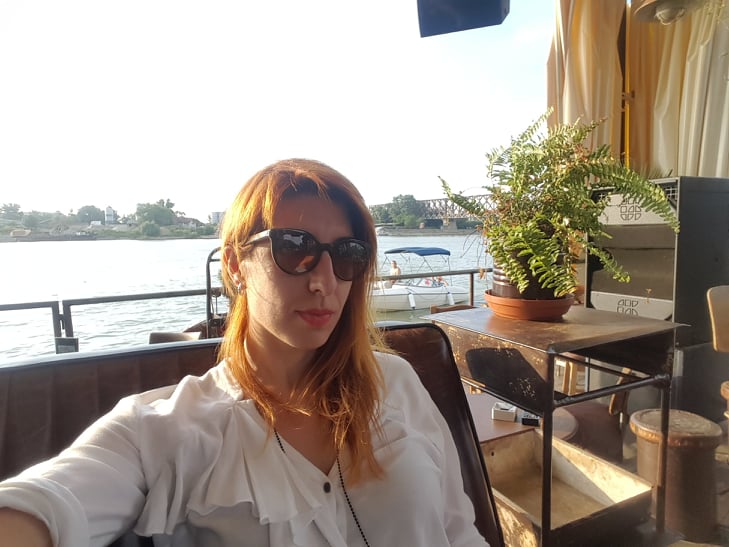
Writer. Blogger. Traveler. Researcher. Electronic Music Lover.

